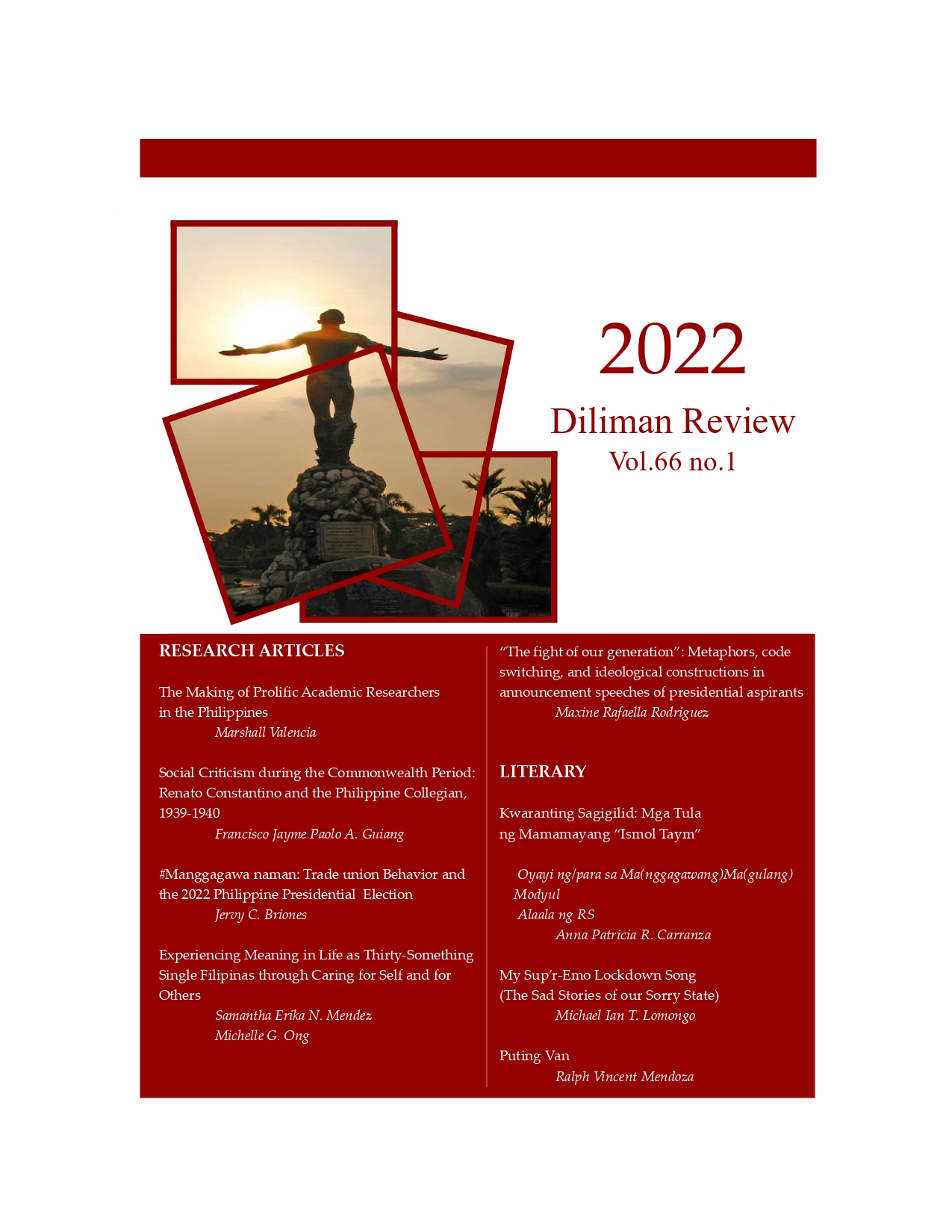#Manggagawa naman: Trade Union Behavior and the 2022 Philippine Presidential Election
Abstract
The Philippine labor movement has been fragmented since the emergence of organized labor in the country during the 1920s. This phenomenon continued during the Third Republic amidst Cold War and even after the fall of the Marcos dictatorship with the Philippine Left’s great split in the 1990s. While in recent years, there were points of unity between different labor groups in some labor issues that even culminated in the formation of a labor electoral coalition in 2019, the hope for labor unity was once again shattered in the 2022 Philippine presidential election. The four largest labor formations have separately endorsed three presidential candidates which signified the absence of the phenomenon of labor vote. From September 2021 to February 2022, the groups released official statements and press releases concerning the elections, their endorsements, and the motivations behind their electoral actions. In this article, these were examined with the help of available literature on Philippine labor to relate each group’s endogenous dynamics, i.e., trade union origin and ideology, to their respective endorsements of the presidential candidates. The results suggest that in the context of the 2022 elections, the Nagkaisa Labor Coalition and the Kilusang Mayo Uno (KMU) adopted democratic and political unionism, the Trade Union Congress of the Philippines (TUCP) maintained economic unionism, and the Bukluran ng Manggagawang Pilipino (BMP) upheld revolutionary unionism, as their trade union behaviors. While they differ in their types of unionism that signify disunity, their separate actions show that the labor movement in its entirety is now more explicit in its political participation in elections.


